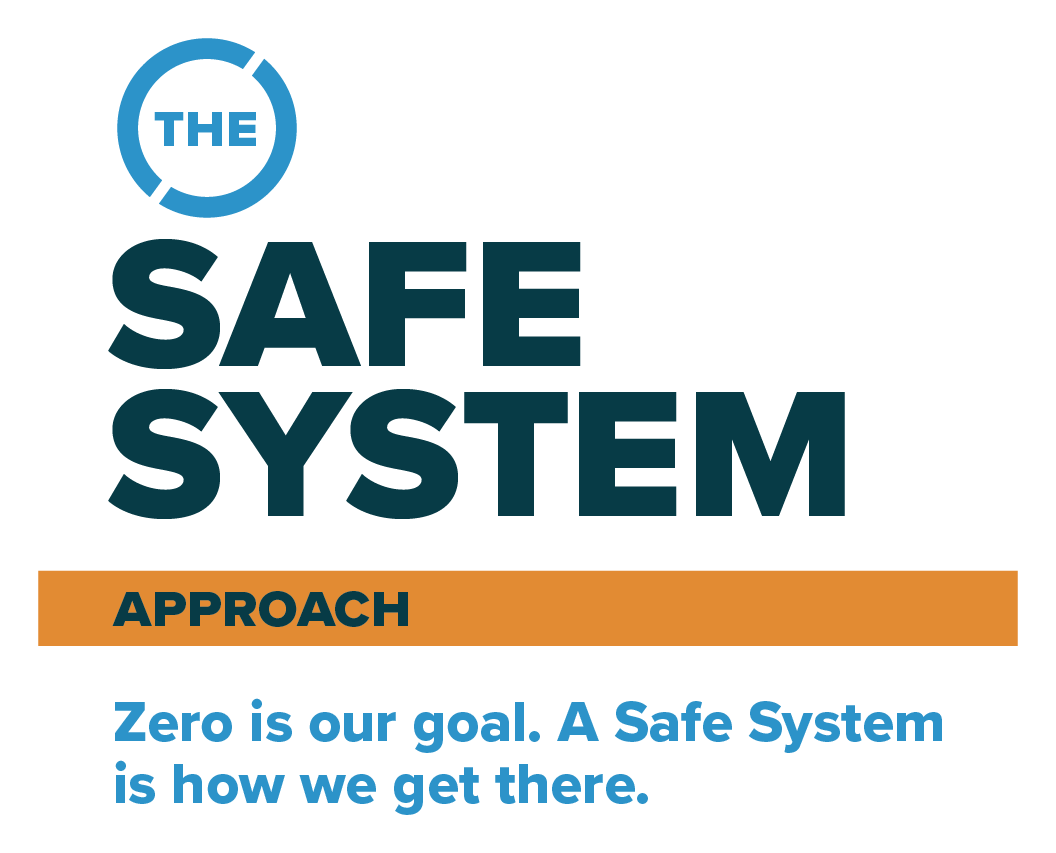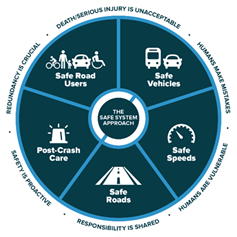Zero Deaths and Safe System

The zero deaths vision acknowledges that even one death on our transportation system is unacceptable and focuses on safe mobility for all road users. This idea was first adopted in Sweden in 1997 as "Vision Zero" and since then has spread around the world.
 Reaching zero deaths requires the implementation of a Safe System approach, which was founded on the principles that humans make mistakes and that human bodies have limited ability to tolerate crash impacts. In a Safe System, those mistakes should never lead to death. Applying the Safe System approach involves anticipating human mistakes by designing and managing road infrastructure to keep the risk of a mistake low; and when a mistake leads to a crash, the impact on the human body doesn’t result in a fatality or serious injury. Road design and management should encourage safe speeds and manipulate appropriate crash angles to reduce injury severity.
Reaching zero deaths requires the implementation of a Safe System approach, which was founded on the principles that humans make mistakes and that human bodies have limited ability to tolerate crash impacts. In a Safe System, those mistakes should never lead to death. Applying the Safe System approach involves anticipating human mistakes by designing and managing road infrastructure to keep the risk of a mistake low; and when a mistake leads to a crash, the impact on the human body doesn’t result in a fatality or serious injury. Road design and management should encourage safe speeds and manipulate appropriate crash angles to reduce injury severity.
There are six principles that form the basis of the Safe System approach: deaths and serious injuries are unacceptable, humans make mistakes, humans are vulnerable, responsibility is shared, safety is proactive, and redundancy is crucial.
Making a commitment to zero traffic deaths means addressing all aspects of safety through the following five Safe System elements that, together, create a holistic approach with layers of protection for road users: safe road users, safe vehicles, safe speeds, safe roads, and post-crash care.
The Safe System approach requires a supporting safety culture that places safety first and foremost in road system investment decisions. To achieve our zero deaths vision, everyone must accept that fatalities and serious injuries are unacceptable and preventable.
Learn more about the Safe System approach from the following materials:
FHWA – Safe System Approach flyer
PIARC – The Safe System Approach
Perth, Australia – video explains how redundancy in Safe System can save lives
Other Resources
